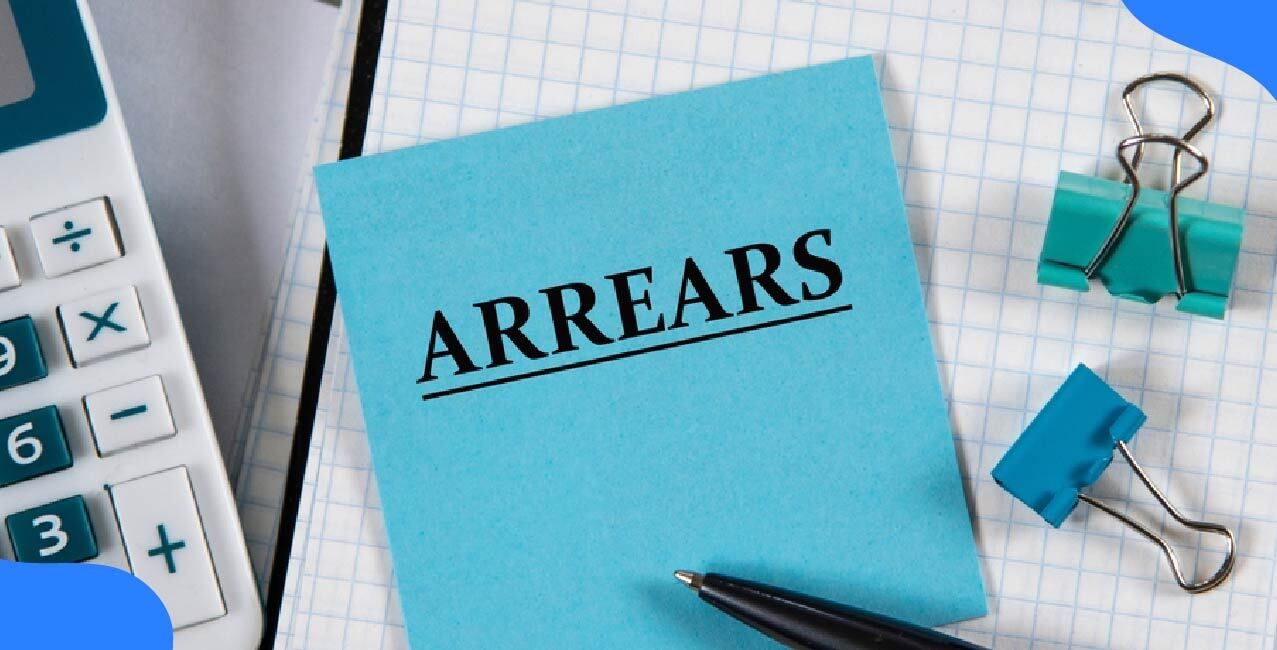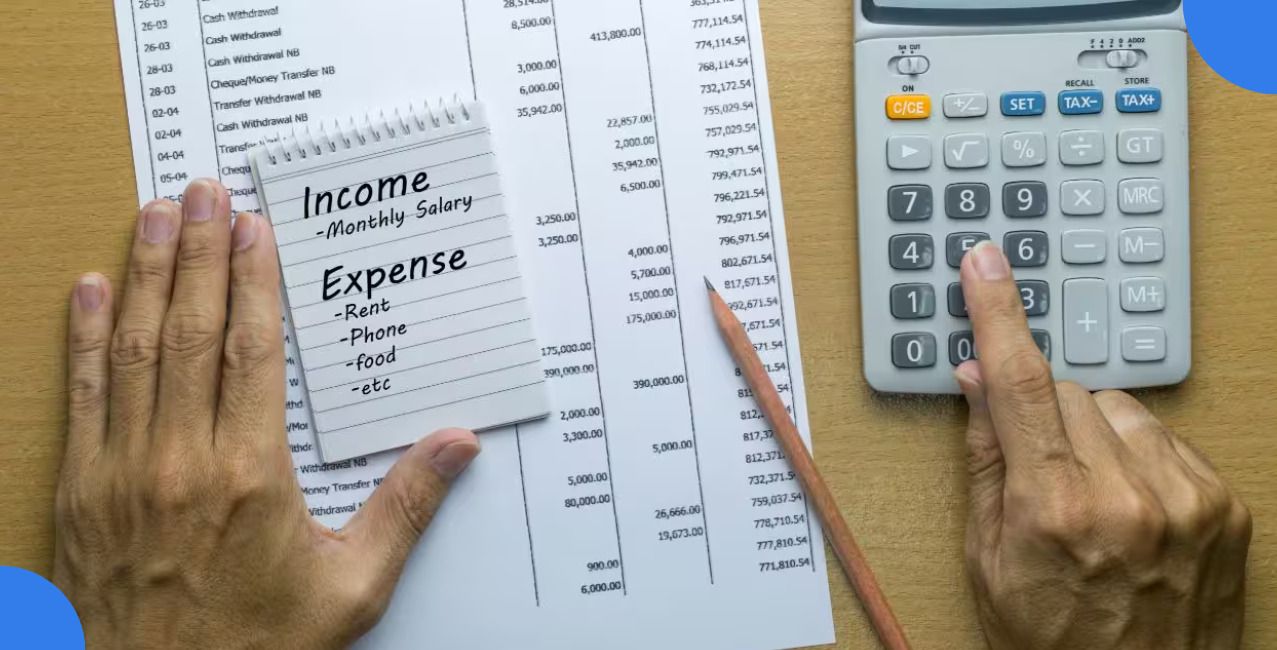What Is Arrears: Meaning, Usage In Finance & Salary Or Loan Payments

Check Your Loan Eligibility Now
By continuing, you agree to LoansJagat's Credit Report Terms of Use, Terms and Conditions, Privacy Policy, and authorize contact via Call, SMS, Email, or WhatsApp
Arrears refer to payments that were due earlier but have not been paid on time. These can apply to salaries, EMIs, rent, dividends, or even utility bills.
Suppose Krishna’s employer increased his monthly salary from ₹50,000 to ₹55,000 starting from February. However, the increment was implemented only in May. For February, March, and April, he received the old salary. In May, he received ₹15,000 as arrears:
₹5,000 × 3 months = ₹15,000 arrears.
This lump sum covered the shortfall from earlier months. Such arrears are common in workplaces, loans, or any situation where money changes hands over time. Through this blog, we will explore where arrears show up and how they affect your finances.
Types Of Arrears
Arrears can arise in various financial situations. Each type serves a different purpose and impacts the recipient or payer differently.
1. Salary Arrears
Salary arrears arise when employees receive payments for past months due to:
- Salary hikes with retrospective effect
- Delayed implementation of increments
- Pay adjustments after promotions or transfers
Suppose Shashi’s salary increased from ₹42,000 to ₹48,000 in January. The following table shows Shashi’s salary arrears for January and February:
Shashi will receive ₹12,000 arrear along with his March salary as a one-time arrear payment.
2. Loan Arrears
These happen when EMIs are not paid by the due date. It can attract late fees and may impact your credit record. You must keep in mind that late fees vary by lender and may be charged per day or per month.
Suppose Natasha misses two EMIs of ₹10,000 each. Now she owes: ₹20,000 + late fees.
3. Dividend Arrears
This applies to preference shareholders when dividends are not paid in a given year. The unpaid amount is carried forward as arrears.
Suppose a company issues cumulative preference shares (shares that carry forward unpaid dividends to future years) offering a 10% annual dividend on a face value of ₹1,00,000. If the company fails to pay dividends in 2023 and 2024, it owes:
₹10,000 × 2 years = ₹20,000 as dividend arrears
The company needs to clear these arrears before paying dividends to ordinary shareholders in 2025.
Read More – What Happens If You Default On A Personal Loan? Legal & Financial Consequences?
4. Rent or Bill Arrears
If rent or electricity bills are missed, then the unpaid amounts are classified as arrears until cleared.
Suppose Jyoti’s monthly rent is ₹15,000. Due to financial issues, she did not pay rent for January and February. The following table shows a breakdown of Jyoti’s missed payments:
To clear her account, Jyoti needs to pay ₹30,000 in arrears along with her March rent of ₹15,000 (total ₹45,000).
Tax Treatment Of Arrears
When you receive salary or pension arrears, they are taxed in the financial year in which you receive them, the year they were actually due. This can lead to a higher tax burden because the lump sum may push your total income into a higher tax slab.
Section 89(1) of the Income Tax Act allows you relief from this unfair burden. To calculate this relief, you need to compare your tax liability in the current year (with arrears) with the year the income actually belonged to.
To claim this relief, you need to submit Form 10E online before filing your income tax return. If you skip this step, the relief will be disallowed, even if you are eligible.
For example, Gagan works in a private firm.
- In FY 2023–24, his salary was ₹10,00,000.
- In FY 2024–25, his salary rose to ₹13,00,000.
- During FY 2024-25, he received ₹1,00,000 in arrears (for unpaid dues from 2023–24).
Now, due to arrears, his income in FY 2024–25 becomes ₹14,00,000. This leads to extra tax. However, with Section 89(1) relief, he only pays tax as if ₹1,00,000 was received in 2023–24. The following table shows the calculation:
Through this tax relief, Gagan saves ₹5,000. You must always report arrears properly in your return and claim Section 89(1) relief with Form 10E. This will help you ensure that you are taxed fairly. Also, it prevents you from any unwanted penalties or rejections by the IT department.
Also Read - Debt Management Strategies for Middle-Class Families
Arrears In Loan Payments
Loan arrears occur when you miss your scheduled EMI payments. They are treated as overdue and often attract penalty interest. Such accumulated arrears can affect your ability to take future loans.
For example, Shalini EMI is ₹9,000 per month. She misses payments for June and July. By August, her arrears are:
Her bank charges late fees of ₹400 per month. So, her total due is ₹18,000 + ₹400 + ₹400 = ₹18,800. Her bank may send reminders to her. Also, the bank might report defaults if her arrears remain unpaid beyond a certain period.
Conclusion
Arrears are a normal part of managing your finances, whether they are related to your salary adjustments, missed EMIs, or delayed dividends.
Arrears are not always a sign of your financial distress, but you need to know how you can handle them smartly.
If you are receiving arrears like back-dated salary or pension, make sure to understand the tax treatment and use the amount wisely.
If you handle arrears with clarity and discipline, then it can turn into financial opportunities rather than burdens that hold you back.
FAQs
1. Can arrears ever be beneficial for my savings?
Yes, lump sum arrears can boost savings if you invest them wisely instead of spending them immediately.
2. Is it possible to negotiate a waiver on arrears?
In some cases, lenders or landlords may agree to waive part of the arrears under mutual settlement.
3. Do arrears vanish if the service is discontinued?
No, even if you stop the service, existing arrears remain payable.
4. Can landlords evict for rent arrears?
Yes, if arrears accumulate beyond a grace period, eviction is legally allowed.
Other Related Pages | |||
About the author

LoansJagat Team
Contributor‘Simplify Finance for Everyone.’ This is the common goal of our team, as we try to explain any topic with relatable examples. From personal to business finance, managing EMIs to becoming debt-free, we do extensive research on each and every parameter, so you don’t have to. Scroll up and have a look at what 15+ years of experience in the BFSI sector looks like.
Subscribe Now
Related Blog Post

Salaried vs. Self-Employed: Who Gets a Personal Loan Faster in 2025?

Too Many EMIs? What to Do When Monthly Payments Become Unmanageable

Post Office Customer Care Number: Helpline & Support
Recent Blogs
All Topics
Contents
Quick Apply Loan
Consolidate your debts into one easy EMI.
Takes less than 2 minutes. No paperwork.
10 Lakhs+
Trusted Customers
2000 Cr+
Loans Disbursed
4.7/5
Google Reviews
20+
Banks & NBFCs Offers
Other services mentioned in this article





